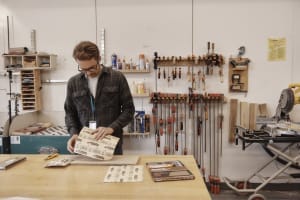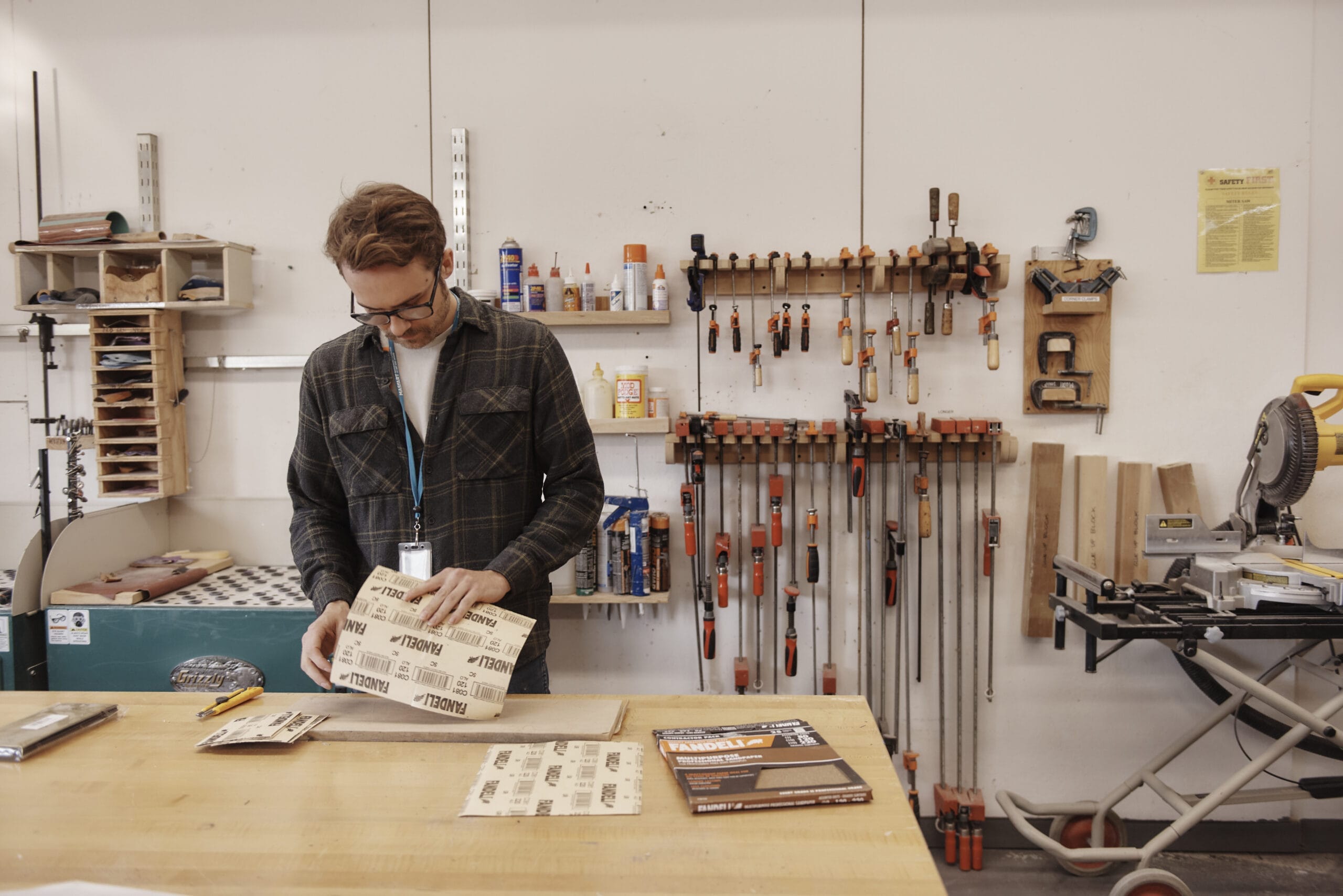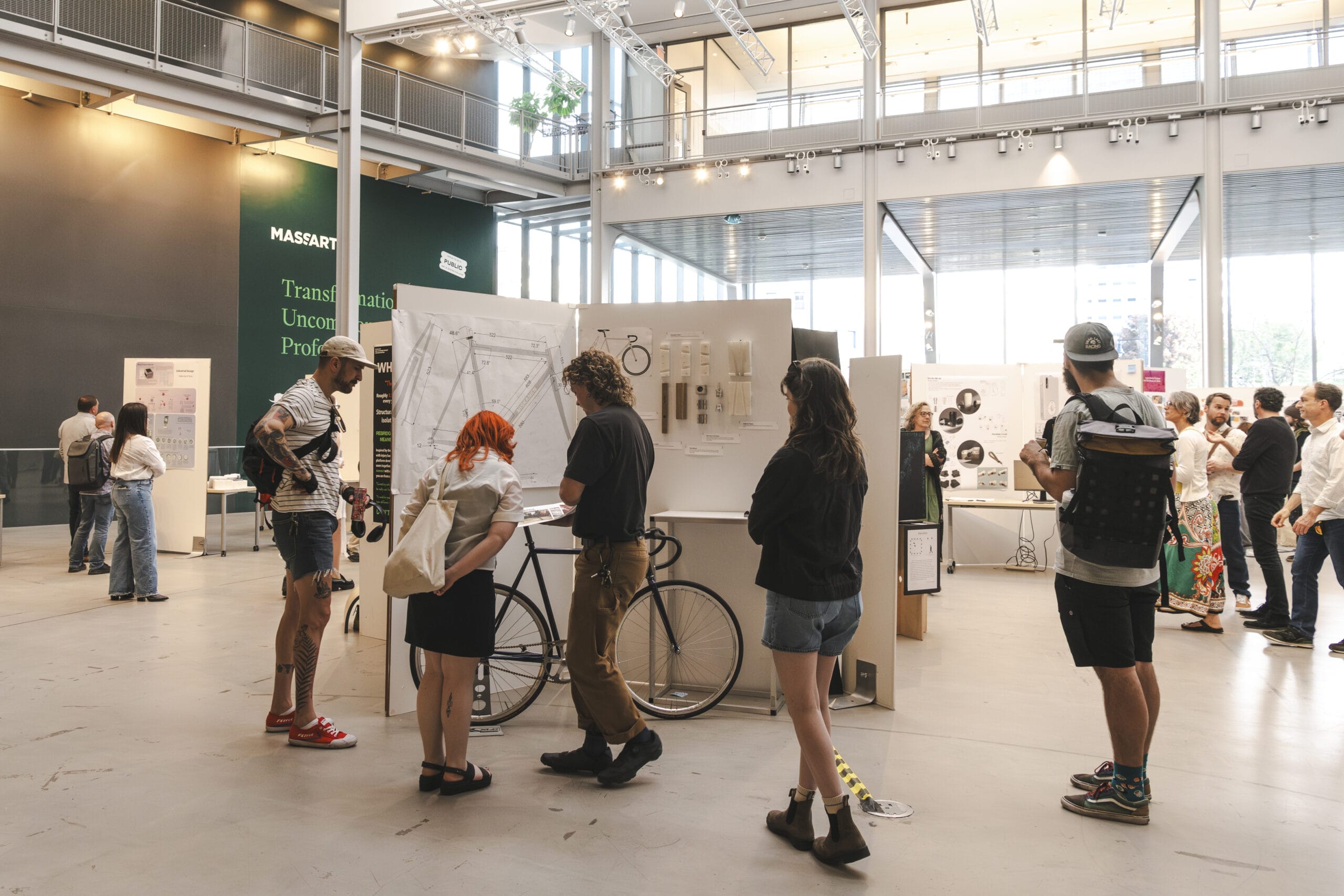

MassArt’s Industrial Design studios offer dedicated spaces, 3D printers, model shops, and advanced fabrication labs for hands-on learning.
Learn MoreDive into the exciting world of Industrial Design at MassArt, where your ideas can spark innovation and change lives.
In the Industrial Design BFA program, we’re dedicated to nurturing holistic, human-centered designers. We invite you to become a problem-solver who blends artistry with functionality.
You’ll build a strong foundation in skills like concept sketching, rendering, and prototyping, and gain experience with computer-aided design (CAD). You’ll also explore materials, manufacturing processes, ergonomics, and sustainability—ensuring your designs are functional, thoughtful, and ready for the real world.
Here, you’ll not only develop your design abilities but also gain the confidence to shape a better future.

MassArt Industrial Design students showcase their innovative projects at the annual Spring ID Show and Awards, open to all.

The Industrial Design studios include spaces dedicated to fabrication and modeling.
You’ll learn to sketch, prototype, and create products that enhance everyday experiences, all while focusing on the needs of real people around the world. Engage in hands-on projects that address pressing societal needs, from sustainable solutions to intuitive consumer products.
Through collaborations with industry professionals and alumni, you’ll learn how to communicate your ideas clearly, incorporate feedback into your work, and develop solutions that meet real-world needs. Our partnerships with leading organizations across Greater Boston give you hands-on opportunities to apply your skills, expand your network, and better understand the many paths within industrial design.
A cornerstone of the program is your Senior Thesis—a two-semester capstone that allows you to dive deeply into your interests and develop innovative, self-directed work that reflects your creative and professional goals.
Students who complete the Industrial Design BFA program are expected to be able to demonstrate the following learning outcomes, which are necessary and part of successful entry into professional design practice.
You’ll leave MassArt not only with hands-on design and technical skills, but also the confidence to present your ideas, communicate their value, and make your work matter in professional settings.
MassArt’s industrial design program graduates are making an impact shaping products, services, and experiences at top brands across a wide range of industries.
Product Designer, UX/UI Designer, Industrial Designer, Sustainability Designer, Furniture Designer, Exhibit Designer, Interaction Designer, Prototyping Specialist, 3D Modeler
Bose Corporation, Hasbro, Shark Ninja, TJX Companies, Inc., TOMY, Vibram, Signify, AVI Boston, Invention City, MCGARRY & Sons, Infra Boston, and more.
New Balance, Nike, Google, Bose, Shark Ninja, Reebok, and Apple, Microsoft, Hasbro, Bose Corporation, Stanley Black & Decker, among others.


MassArt’s Industrial Design studios offer dedicated spaces, 3D printers, model shops, and advanced fabrication labs for hands-on learning.
Learn More